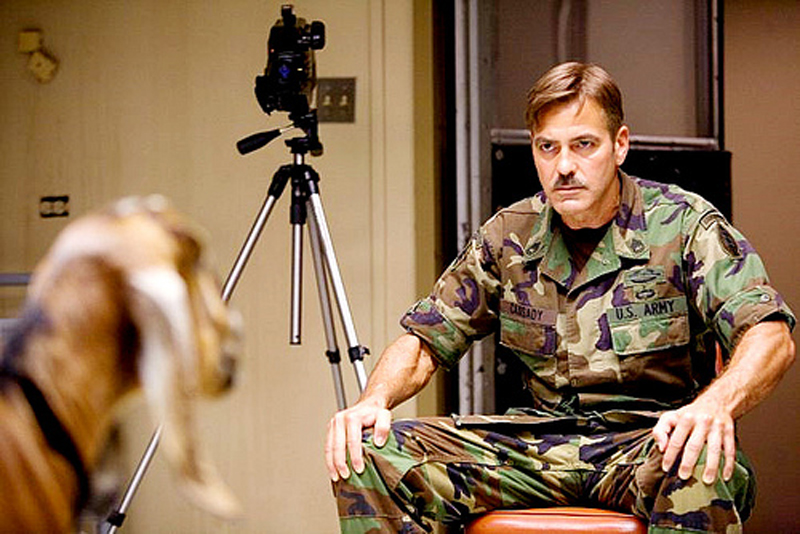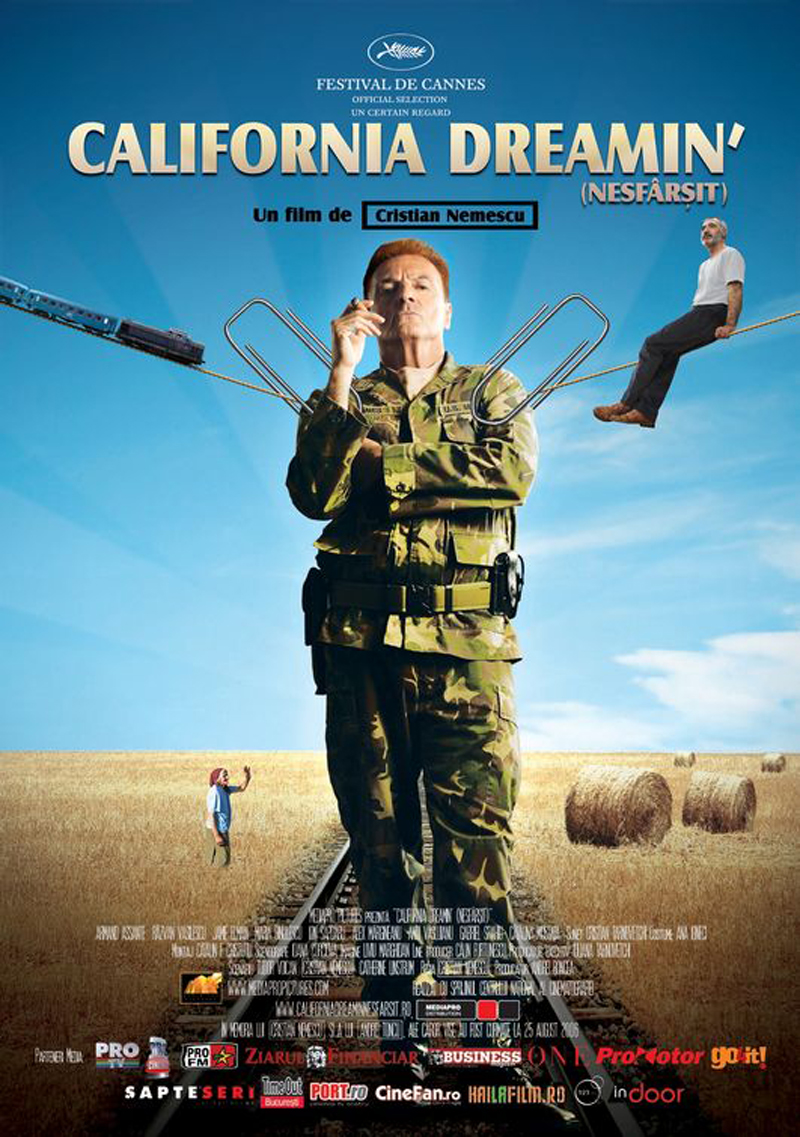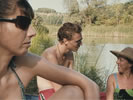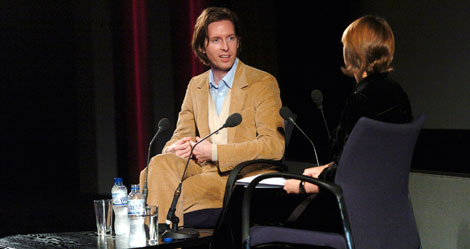Following an actor, writer and would-be chanteuse on their solitary
quests for fame and glory, Marc Fitoussi’s La Vie d’artiste bristles
with sharp observations and unpalatable truths about creative pursuit,
artistic compromise and personal disappointment.
La Vie d’artiste concerns a singer, an actress and a writer in
pursuit of recognition. Are there any parallels with your experiences
as a filmmaker? How did you come up with this story?
I wrote it when I was not really sure about my career, so I think
it’s a bit autobiographical and I’m a bit like the three characters, I
don’t know which one, but I’m like the three in different ways. And I
wanted to make a comedy because I thought that what I was living when I
was trying to work as a screenwriter and director was very hard but, at
the same time, very funny too. I like subjects that can be bitter-sweet
and have different styles in a film.
The tragicomic balance seems quite rooted in the film’s success
in covering different bases of the struggling artist predicament. We
see self-doubt and honesty alongside vanity and self-delusion.
Yeah right, and being also very egocentric and narcissistic! But I
would say that I am not like these characters just because the film is
also about the need for visibility that artists know. Alice, for
example, is more afraid about being seen on a screen. She never talks
about working with a director she likes or serving a text she loves.
This egocentric curse, or pursuit, is something very contemporary… Even
when you are a writer it is more important to have a good face for the
cover and I think art has changed a little because of that.
Cora seems the least desperate in this way…
Maybe Cora is the most clairvoyant (perceptive) one. She wants to
sing good music, and she’s not looking to be seen. She’s a bit
different from the two others because, well, she’s younger so there’s
no drama for her… She’s less desperate and at the same time she is not
doing the job to be seen. She’s not trying to go too fast.
There are some very funny, and humiliating, moments. Are any of these real?
Some are real! For example, I used to work in an English bookstore
in Paris called WH Smiths! In Paris, it’s supposed to be very chic.
It’s like Waterstones, but they prefer to name it WH Smiths because
people knew it. We received a writer one day and my boss came to find
me and asked me to go out, put my coat on and ask for his signature,
because there was no-one, like in the movie. Sometimes I use stuff from
real life, sometimes I invent.
There are so many reality shows at the moment built around
finding talent, or creating the illusion of it, in ordinary people.
Your film struck me as a very different take on notions of talent and
the desire to be famous.
Yeah, in fact, concerning the characters, I didn’t want to say if
they were talented or not. This story is not about the talent but more
about the quest to be famous. For example, we never see Alice playing,
and the only time we can see her play is when she is asked to get a
signature and she doesn’t do it. I always try to blur the talent of the
artists, except for Cora, because we see her singing at the beginning.
But at the same time, I’m sure some people will say that she sings very
well, others will say, ‘I don’t like her voice.’ It’s very difficult in
a film to say that this person is talented and to show it in fact,
because people have different taste.
Yes, I’ve seen some films about painters…
Yeah! And you see that and think, ‘But I don’t like what he’s doing!’
I remember watching a very long French film called La Belle noiseuse…
La Belle noiseuse, yes, yes! I remember this one… it’s hours! I know, I know!
The characters aren’t connected in the film, but balance each
other well. Your three leads are all recognised actors in France, how
did they come to be involved?
Yeah, concerning the screenplay, I didn’t want them to meet more
because it was three portraits of solitude. The casting was a bit long.
At first I tried to make the film with actors who were not so famous,
because the three are pretty famous in France, but I couldn’t find
money… So we decided to propose the screenplay to Sandrine Kiberlain,
who is the most famous of the three, and she said yes very quickly, in
twenty-four hours. The next day she called us to say that she loved the
screenplay, so that was great. In France you need to have bankable
actors to make a film, especially when it’s a first feature. Maybe
after a few successful… For example, François Ozon could make a film
with people who we didn’t really know, because he was the one who was
bankable.
France seems to have actors who are genuinely bankable at home without necessarily being famous internationally.
You’re right… In France we tried to make the film first with the
actress who plays the part of Alice’s sister, who was supposed to play
the part of Alice because I already made a short movie about a jobbing
actress and Marilyne Canto was playing the part, so it was normal to
keep her for the feature. It was very hard to explain to her that
you’re not famous enough to make the big part. Everything changed when
Sandrine arrived. France is like Hollywood, it’s working the same way.
More generally, who are your influences in filmmaking?
I’m always a bit afraid to answer this question, just because it
would sound a bit pretentious! But I would say that I really love
François Truffaut, especially because he is able to mix different
styles in one movie and it’s always bitter-sweet. It can be comedy and
drama in the same film and I really like this, to find different
aspects in the same story. La Vie d’artiste could have just been a real
comedy and very hopeful and optimistic, and I didn’t want that, or it
could be also a real drama and I thought it would have been too
miserabilist.
I read that you recently won a ‘best first feature’ award at the
Deauville film festival. How important are film festivals like LFF to
your work?
Well I was very pleased to come here and attend the screenings just
because, especially when you do comedy, it’s so interesting to see the
reaction and to see if people are laughing at the same time, at the
good times, or if language changes things. Also the thing that’s great
is that I could meet audiences, do the Q&A and it’s so rare to have
the reaction when you release a film – you’re not going to go to the
cinema and say, ‘I’m the director, can I talk with you? What did you
think?’ We have been so well received, it’s very exciting. I had my
first dinner with Atom Egoyan, and I had a poster of Exotica in my room
when I was younger, so for me it’s like a dream.
Have you been able to see anything?
Yeah, I saw Home with Isabelle Huppert. I’m supposed to make a new
movie in March with Isabelle Huppert. It’s a big event, very exciting,
and I’m a bit afraid of it!
Katy Fife, BFI





























